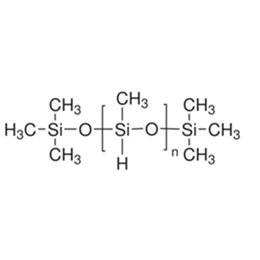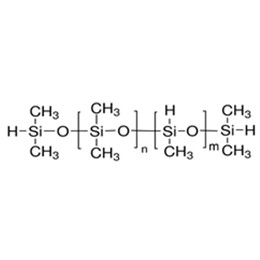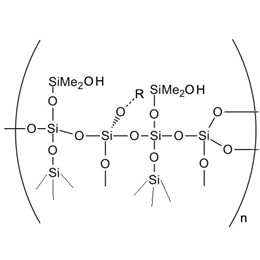Silicone is the first widely used elemental organic polymer compound, because of its unique chemical structure and excellent performance, it is widely used in various fields of the national economy, and also occupies an important position in the coatings industry.
In the coating industry, there are many materials, silicone coatings are coatings with silicone polymers and silicone-modified polymers as the main film-forming substances, which have been rapidly developed in recent years in terms of product performance improvement and application. Why prefer silicone coatings firstly?
Compared with many other coatings, silicone resin as a component of the coating to improve the surface properties of the film and heat resistance, UV rays resistance, as well as weathering and other aspects, have great benefits; silicone resin as the main film-forming material of the coating is to determine the most basic factors of the coating's heat resistance, silicone resin to the silicone-oxygen bond (-Si-O-) as the main chain, and thus has a high bonding energy. Because of its high bonding energy, it has high oxidation stability, and silicone resin can generate a protective layer of stabilizing chain -Si-O-Si- on the surface of the coating, which reduces the impact on the interior of the polymer; silicone resin also has a wide range of heat-resistant coatings in the application.
Here's some information, please read the full page:
- How to classify silicone resin coating?
- What are the benefits of adding silicone resin?
- How to choose the raw material for silicone coatings?
- How to use silicone resin coating?
- How to make silicone coatings performance better?
1. How to classify silicone resin coating?
Silicone resin coatings are widely used because of their excellent chemical properties, high-temperature resistance, chemical resistance, etc.
1.1 Electrical insulating coating
The electrical insulating coatings made of silicone resin and organic materials are used at a maximum temperature of 110℃; the electrical insulating coatings made of silicone resin and inorganic materials are used at a maximum temperature of 130℃; and the electrical insulating coatings made of pure silicone resin and inorganic materials can be used for a long time at 180℃. Alkyd resin modified by siloxane can be made into F-class (155 ℃) insulating coatings.
1.2 High-temperature resistant coatings
Based on silicone resin, adding some ingredients can generate high-temperature-resistant coatings.
Silicone resin as a base material, add heat-resistant pigment fillers made of paint, can be used for a long time in 250-400 ℃, and maintain the color and luster. If aluminum powder, glass powder, black iron oxide, and chromium oxide are added, they can withstand temperatures of 500-600°C or even higher. These coatings also have low-temperature resistance, anti-corrosion, and hydrophobicity, etc., has been widely used in petrochemical, metallurgical steel plants, power plants, and other high-temperature equipment, boilers, airplanes, automobile engine shells, missiles, and aerospace equipment insulation protection, as well as other high-temperature and corrosion, oxidation-resistant requirements of the equipment and the site.
In addition to pure silicone resins, modified silicone resins are also widely used as heat-resistant coatings. Although modified silicone resins are not as good as silicone resins in terms of heat resistance, they are better than pure silicone resins in terms of solvent resistance, chemical resistance, and adhesion.
![]()
1.3 Weather-resistant coatings
Since there is no unsaturated bond in the molecule of silicone resin, UV rays do not make it easy to crack or cross-link. Such as pure silicone resin coating film placed in outdoor and entire roof surface sun exposure for 12 years, with no loss of light, discoloration, or powder phenomenon, proving that its weather resistance is very prominent, and can be resistant to UV rays. But silicone resin curing generally requires higher temperatures and the adhesion of the ground material is not good, and thus rarely used as a single-ply coating, mainly modified silicone resin as a weathering coating, and is widely used in silicone roof coating systems, entire roof surface can have long service time.
1.4 Wear-resistant hardening coatings
Hydrolysis and condensation of Alkoxysilanes are produced by the low R / Si value (high-branch) silicone resin, the substrate has good adhesion, and after curing, the appearance of glass is also known as glass resin. After curing, the coating film is hard, heat-resistant, cold-resistant, solvent-resistant, water-resistant, and highly transparent, with a transmittance of more than 90% in the visible region. Wear-resistant hardening coatings are not only used in a variety of plastic and rubber products but can also be used as electronic components, such as resistors, capacitors, transistors, and other protective coatings.
![]()
1.5 Anti-adhesive mold release coating
Using the reactivity, cross-linking, and film-forming properties of silicone resin, a semi-permanent film can be formed on the treated substrate or on the molding abrasive tool and is therefore more effective than silicone oil and silicone rubber as an anti-adhesive release agent. This coating is used in the production of baked bread, snack trays, candy, chocolate, etc., but also in the oil frying of non-stick cookware and plastic, rubber, metal, and other molds used as an anti-stick release agent, with its durability, non-migration, and non-toxicity and gained good application results.
1.6 Waterproof coating
Silicone resin has excellent hydrophobicity, so it can be widely used as a waterproof coating, especially in the waterproofing of roof coating, the effect of silicone roof coating is very good, the building materials that lead to the concrete and masonry type of water infiltration and damage caused by the more prominent. Extending the service life of the existing roof requires the use of a waterproof product that prevents water intrusion, and does not hinder the internal moisture outflow and ponding water, silicone roof coating systems are effective. At the same time, silicone coatings can be applied to many roofs, such as metal roofs, and modified bitumen roofs polyurethane foam roofs, weathered single-ply membranes. Silicone resin as a waterproof coating can also be applied to building materials and masonry, and its life expectancy after application is 10-15 years. Therefore, as a one-coat application, silicone resin waterproof coating also has important advantages for the restoration of ancient buildings and masonry works of art.
![]()
![]()
XJY-8205 Powder series methyl MQ Silicone Resin is a solid powder resin, this resin can provide excellent transfer resistance and water resistance and also can line into a long-lasting film, and durable for waterproofing, in the field of building materials and can be used as silicone waterproof coating. high solid. Among them, XJY-8205-07 has been widely used in automobile waterproofing agents by end customers.

2. What are the benefits of adding silicone resin?
2.1 High-temperature resistance
General synthetic resin coating's heat-resistant temperature is about 150 ℃ below, while silicone resin coating can be used for a long time at 200 ℃. If high-temperature pigment is added, the heat resistance can reach 400℃ ~ 500℃, and special ones can reach 800℃ ~ 900℃. Therefore, it is suitable for coating high-temperature resistant parts.
2.2 Good electrical properties and hydrophobicity
As the outer layer of silicone resin coating molecule has a layer of non-polar organic genes and symmetry of molecules, it becomes the basic reason for its good electrical insulation properties and water repellency. In terms of insulation, not only the insulation resistance is high, but also the breakdown amplitude and resistance to high-voltage arc sparks and other aspects of excellent performance, so it can be used for impregnation of motors and insulation performance requirements of higher parts to improve the insulation level of the insulating parts.
When silicone resin coating film is immersed in water for 168h, with a water absorption rate of about 0.2%, so silicone resin coating is suitable for high-temperature, moisture environments.
2.3 Large surface activity, small tension
As Polysiloxane is a symmetric molecule, the substituent is a non-polar organic group, so the whole molecule is non-polar. Intermolecular forces are small, and the cohesion of the molecule itself is also small, so the surface tension is small, when it is dispersed in the surface tension of the media surface, the media can be separated, and because it and the media between the molecular forces are also small, so it can reduce the surface tension of the media so that it is not easy to form foam. Therefore, it can be used as a defoamer and leveling agent in the paint to prevent the paint film from glowing, pitting, etc. The dosage is 0.2% ~ 0.3%.
2.4 Good cold resistance
Due to the structure of the silicone resin coating macromolecule itself, the attraction between the molecules is weak, which gives it a good cold resistance. Pure silicone resin cold resistance of -50 ℃ or so, and polyester-modified silicone resin coating W31-1 can be resistant to temperatures below -80 ℃, so this coating can be used in colder places.
2.5 Good chemical resistance
Due to the presence of ether bonds in silicone resin coatings, inherent chemical resistance is of good performance. For example, paint film immersed in 2% acetic acid: 10% hydrochloric acid, 10% nitric acid, 10% sulfuric acid, 10% caustic soda, and 10% sodium nitride or butanol, kerosene, after 100h, the paint film is still good.
2.6 Good mold resistance
Because the silicone resin coating does not contain oil components, the mold can not survive in the silicone resin coating film, so the silicone resin coating has a good mildew resistance, suitable for coating in the special mildew resistance requirements of the parts.
![]()
![]()
3. How to choose the raw material for silicone coatings?
XJY-8010A/B/XJY-83350 Flake Silicone Resin can be used for high-temperature-resistant powder coating and liquid coating. The first and foremost characteristic of silicone resin is its excellent heat-resistant property, which hardly decomposes under 200℃ or even higher temperatures, can be used in the preparation of various heat-resistant paints, and its heat-resistant insulation grade can reach the H class.
Silicone resin also has excellent weather resistance, ozone resistance, arc resistance, hydrophobic moisture, salt spray, mold resistance, and other properties. For example, coatings modified with more than 20% silicone resin have significantly improved properties such as water resistance, yellowing resistance, and temperature resistance, UV rays resistance.


XJY-701 Polymethylhydrosiloxane under the action of a metal salt catalyst, can be crosslinked to form a film at low temperatures, forming a waterproof film on the surface of various substances, which can be added to silicone waterproof coating as a waterproofing agent for various materials such as metal, cement, and marble.

XJY-711 Hydride Terminated Methylhydrosiloxane Dimethylsiloxane/Copolymer can be added to silicone coatings as a waterproofing agent used in construction.

4. How to use silicone resin coating?
Before the use of silicone resin coatings, starting from the ingredients, according to the manufacturer, the construction environment, and the requirements of the workpiece, the viscosity of the paint is adjusted with a special matching diluent.
The approximate amount of thinner:
airless spraying, about 5% to 10% (in terms of the quality of paint, the same as below);
air spraying, about 15% to 30%;
brush coating, about 10% to 20%.
Different manufacturers, different coating products, and thinner dosages also vary. Construction should be based on experience, at any time to detect the coating thickness, if the thickness does not meet the specified requirements, make up for the coating promptly; the coating film is not dry before or before the next spraying, the coating film should be protected from staining or damage; after spraying, the coating film surface should be free of flow marks, no leakage of spraying phenomenon, the coating film thickness is uniform, the color and luster is consistent, there shall be no roughness and unevenness; There should be no defects such as hanging, cracking, blistering, peeling and so on.
4.1 Precautions for Silicone Coatings Construction
Under normal circumstances, silicone resin coatings are spraying construction, spraying construction should pay attention to the following points:
(1) The construction of any coating must comply with the specified temperature and humidity conditions, and silicone resin coating is no exception. Silicone resin coating construction of the best environmental temperature of 5 ~ 40 ℃, an ambient humidity of 25% ~ 85%.
(2) The air compressor should pay attention to the installation of the oil-water separator, and every day regularly do the oil-water separator, and air compressor water, this is very important.
(3) Before painting, mask the parts that don't need to be painted, such as wedge grooves, shaft holes, finishing surfaces, and some special parts.
(4) Before painting, strictly check whether the painting apparatus is clean and dry, and if there is any pollution, it must be treated to meet the corresponding requirements before painting.
(5) When mixing paint, strictly prohibit the use of gasoline and water, it is best to use a special thinner to adjust the viscosity of the paint.
(6) Spraying tools after use, should be cleaned in time to keep clean and dry, to be used next time.
(7) The surface of the paint film should be avoided from human trampling and mechanical damage during transportation.
(8) Try to use environmentally friendly high-solid silicone resin coatings, especially the paint varieties of brand-name paint manufacturers.
(9) According to the silicone resin coating products require drying conditions for curing to ensure the quality of the coating film.
![]()
5. How to make silicone coatings performance better?
Silicone resin has excellent high-temperature resistance and outstanding dielectric properties. It has excellent corona resistance, UV rays resistance, arc resistance, dielectric loss angle tangent value is low, these are other synthetic resins are not as good, widely used in the coatings industry and can improve the performance of coatings for a variety of purposes. How to improve the competitiveness of your products?
XJY Silicones is one of the leading silicone MQ resin and VMQ silicone manufacturers in China, with more than 30 years of R&D and manufacturing experience in the silicone industry and more than 15 related patents and technical support. Our raw silicone products can meet the needs of silicone coatings and support the provision of diversified customized solutions.






